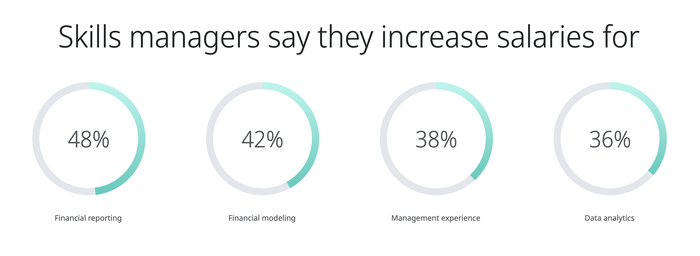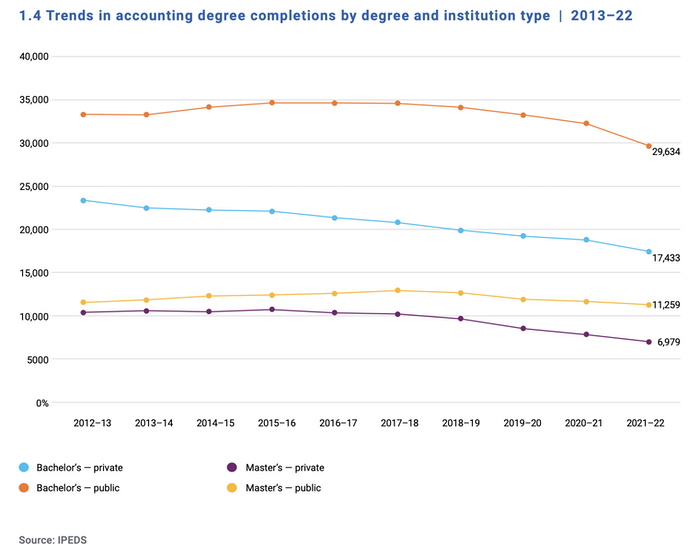As the number of students entering the accounting profession hits a record low and an entire generation of experienced professionals prepares to retire, companies are increasing compensation, loosening work-from-home policies and utilizing more contract workers in order to prevent a critical shortage of talent from spilling over into their financial reporting operations.
“Companies are experiencing an accountant shortage, causing both financial reporting issues for managers unable to find the requisite expertise and increased workloads that can lead to employee burnout,” says the Robert Half’s 2024 Salary Guide
issued by Robert Half last week.
All business lines are being hit with increased compensation demands, with 51% of companies surveyed by RH saying that they had increased starting salaries across all functions. The survey added that 40% said that they had offered signing bonuses and 36% offered retention bonuses.
Specifically in finance, the survey said that employees with financial reporting expertise were offered the largest salary increase. Employees with financial modeling, data analytics and management experience also saw their paychecks rise.

The report says that financial planning and analysis (FP&A) skills were in the most demand, especially those FP&A employees with accounting backgrounds.
“Salaries for these and other hard-to-hire positions continue to climb,” RH says, adding that allowing staff to work from home “at least a couple of days per week” was also a popular retention strategy.
For those companies that continue to struggle in staffing their finance and accounting operations, leaders are increasingly turning to contract workers, the report explains, saying that 64% of managers say their company plans to increase the use of contractors, while only 6% say they will decrease their use.
College accounting programs continue to struggle
While the talent shortage for experienced finance and accounting professionals continues to deepen, the outlook for the front end of the talent pipeline has gotten worse.
Bachelor’s degree completions in accounting dropped 7.8% from 2021–2022, according to a
report released last week by the American Institute of Certified Public Accountants (AICPA).
The significant shortfall comes after what the AICPA already says is a steady decline of 1-3% per year since 2015–16.

RH also noted the critical lack of college accounting majors as a threat to the industry, adding that it is a particular concern for public accounting firms for now but is making its way through the pipeline to industry.
“Competition for experienced talent is also an issue, as many public accounting employees leave for corporate jobs with more manageable workloads,” RH says.